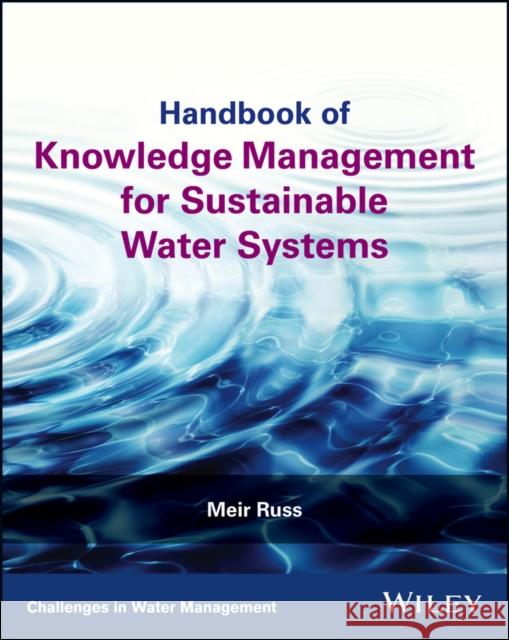Handbook of Knowledge Management for Sustainable Water Systems » książka
Handbook of Knowledge Management for Sustainable Water Systems
ISBN-13: 9781119271635 / Angielski / Twarda / 2018 / 328 str.
As the new knowledge economy continues to evolve, knowledge is being recognized as a key business asset and a crucial component of organizational strategy. The ability to manage knowledge, therefore, is quickly becoming vital for securing and maintaining organizational survival and success. As a result, companies are investing heavily in Information Systems (IS) and /or Knowledge-Based Systems (KBS) technologies. Unfortunately, such investments frequently do not meet expected returns.
This book recognizes Knowledge Management (KM) as a socio-technical phenomenon in which the basic social constituents such as person, team and organization require interaction with IS/KBS applications to support a strategy and add value to the organization while improving the sustainability of a water system. Many organizations and their managers recognize that the critical source of sustainable competitive advantage is not only having the most ingenious product design, the most brilliant marketing strategy, or the most state-of-the-art production technology, but also having the ability to attract, retain, develop and manage its human assets and their knowledge and innovation.
Sustainability has been defined as economic development that meets the needs of the present generation without conceding the ability of future generations to meet their own needs. With growing pressure from customers and regulators toward environmental and social issues, companies are increasingly expected to shoulder greater responsibility for making sustainable development a reality. Recent droughts and water shortages worldwide on one hand, and advanced scientific understanding and documentation of the impact of demographic and economic forces on water footprint and embedded water makes the need for sustainable development and management of water systems only more acute. This requires policy makers, planners and management to balance economic, business, social and environmental concerns and outcomes. For that to happen, leaders need to quantify the relationships of all those aspects across different time horizons and link their organizational knowledge-base to strategy and outcomes so they can consider the tradeoffs of different alternatives.
According to the World Health Organization (WHO), about one fifth of the world's population in 2009 lived in countries that did not have enough water for their use. By 2025, 1.8 billion people will experience absolute water scarcity, and by 2030, almost half the world will live under conditions of high water stress. Yet only recently was the science of coupled human-water system advanced and the complementing IT/IS technological aspect is still lacking. For example, in a recent Water JPI (2014) paper, presenting eight major water topics for Europe (Horizon 2020), while identifying the gaps and game changers, knowledge management was listed directly and indirectly in all of them.
The book goes beyond the current literature by providing a platform for a broad scope of discussion regarding KM4SWS, and, more importantly, by encouraging a interdisciplinary fusion between diverse disciplines. Specifically, this call for proposals is soliciting chapter proposals from a multidisciplinary array of scholars. The book parts/chapters discuss socio-hydrology sustainable systems within the present political (legislative) economic and technological context from a number of disciplines/perspectives, including: Economic Development, Financial, Systems-Networks, IT/IS Data/Analytics, Behavioral, Social, Water Systems, Governance Systems and Related Ecosystems. Multi-level and multi-discipline chapters that synthesize diverse bodies of knowledge are strongly encouraged. When appropriate, plurality of empirical methods from diverse disciplines that can enhance the building of a holistic theory of KM4SWS are also encouraged.











